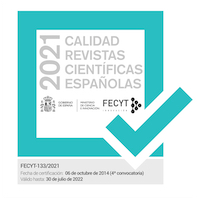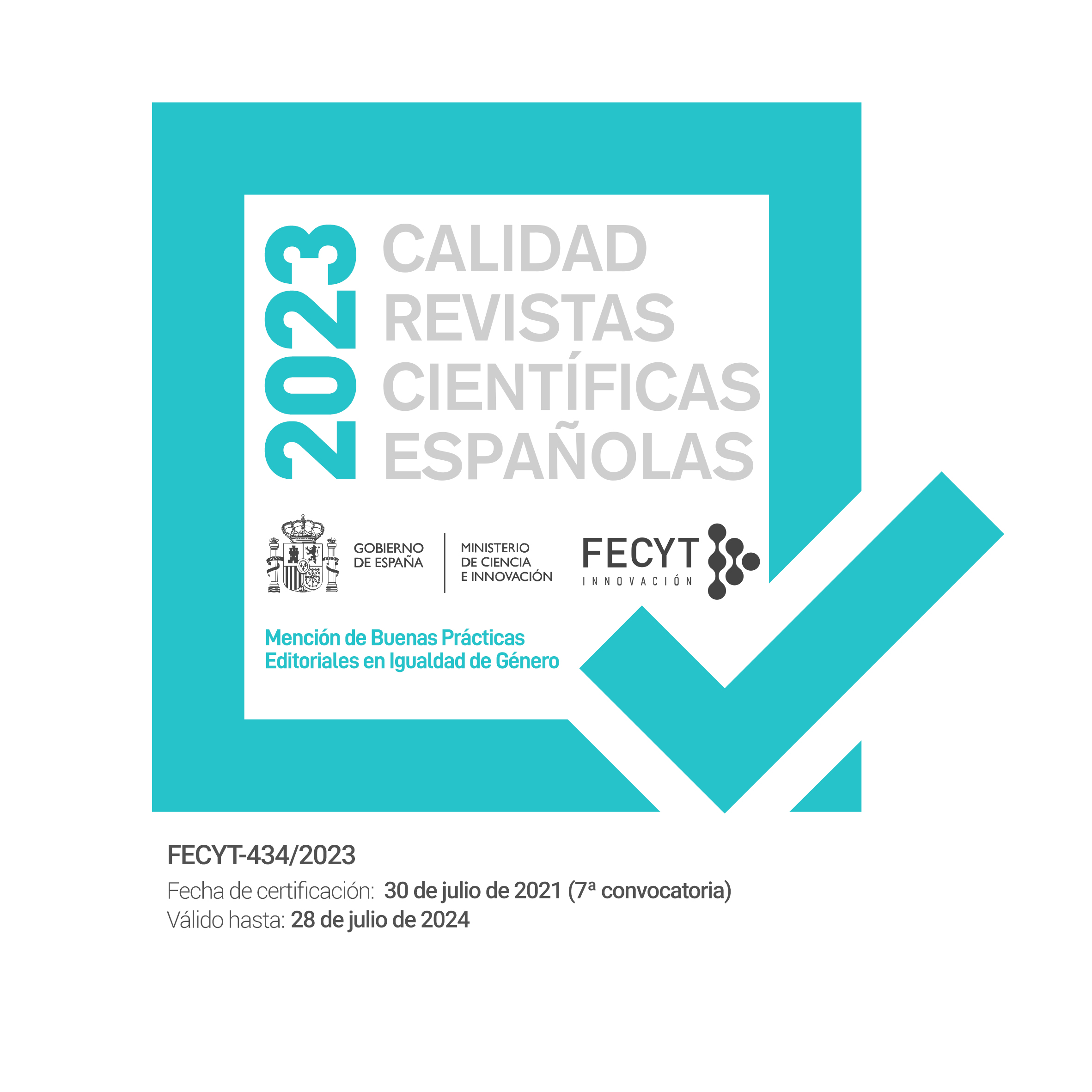El Romano Pontífice como juez supremo en quaestionibus fidei a la luz de la decretal Maiores de Inocencio III
Palabras clave:
causae maiores, quaestio fidei, Roman Pontiff, infallibility, inerrancy, indefectibilityResumen
The Medieval era signals a very important moment in the definition of the primacy of the Church of Rome over the other Churches. One aspect of such primacy is the pre-eminent jurisdiction in all matters of faith attributed to the authority of the Bishop of Rome. With his letter Maiores Pope Innocent III affirms this competence of the
Roman Pontiff in a concrete decision. The article presents this letter in the light of decretist and decretalist contributions towards identifying the competence of the Pontiff in this sphere.
Keywords: causae maiores; quaestio fidei; Roman Pontiff; infallibility; inerrancy; indefectibility.
Citas
<div>
<p>Becker, Karl J. "Articulus fidei (1150-1230): Von der Einführung des Wortes bis zu den drei Definitionen Philipps des Kanzlers." <em>Gregorianum</em> 54 (1973): 517-569.</p>
<p>Denzinger, Heinrich, and Hünermann, Peter. <em>Enchiridion Symbolorum definitionum et declarationum de rebus fidei et morum. </em>Bologna, 2009 .</p>
<p> Ferme, Brian Edwin. “Questioni sulla tutela dell’integrità della fede.” <em>Parola di Dio e missione della Chiesa. Aspetti giuridici</em>. Milano, 2009.</p>
<p>Glare, Peter G.W. <em>Oxford Latin Dictionary</em>. New York, 2005.</p>
<p>Grossi, Paolo. <em>L'ordine giuridico medievale</em>. Roma, Bari, 2003.</p>
<p>Häring, Nikolaus M. “Die ersten Konflikte zwischen der Universität von Paris und der kirchlichen Lehrautorität.” <em>Miscellanea Mediaevalia, Veröffentlichungen des ThomasInstituts der Universität zu Köln,</em> X. <em>Die Auseinandersetzungen an der Pariser Universität im XIII</em>. Jahrhundert, Berlin, 1976.</p>
<p>Hödl, Ludwig. "Articulus fidei. Eine begriffsgeschichtliche Arbeit." <em>Einsicht und Glaube, Freiburg-Basel-Wien</em> (1962).</p>
<p>Hof, Alfred. "“Plenitudo potestatis” und “imitatio imperii” zur Zeit Innocenz III." <em>ZKG 56</em> (1954).</p>
<p>Kemp, Eric W. "Pope Alexander III and the canonization of saints: the Alexander Prize essay." <em>Transactions of the Royal Historical Society</em> 27 (1945).</p>
<p>Kenneth, Pennington. “Henricus de Segusio (Hostiensis).” <em>idem, Popes, Canonists and Texts 1150- 1550</em>.Titolo XVI. Aldershot, 1993.</p>
<p>Landgraf, Artur. "Scattered Remarks on the Development of Dogma and on Papal Infallibility in Early Scholastic Writings." <em>Theological Studies</em> 7 (1946).</p>
<p>Maccarrone, Michele. “Una questione inedita dell’Olivi sull’infallibilità del Papa.” <em>Romana Ecclesia Cathedra Petri, Italia Sacra, Studi e documenti di storia ecclesiastica</em> 48. Roma, 1991.</p>
<p>Mclaughlin, Terence P. <em>The Summa Parisiensis on the Decretum Gratiani</em>. Toronto, 1952.</p>
<p>McManus, Brendan Joseph. "The ecclesiology of Laurentius Hispanus (c. 1180-1248) and his contribution to the Romanization of canon law jurisprudence, with an edition of the Apparatus glossarum Laurentii Hispanii in Compilationem tertiam." Syracuse, 1991.</p>
<p>Pennington, Kenneth. "The legal education of Pope Innocent III." <em>idem Popes, Canonists and Texts 1150-1550</em>. Aldershot, 1993.</p>
<p> Recchia, Alessandro. <em>L'uso della formula" plenitudo potestatis" da Leone Magno ad Uguccione da Pisa</em>. Roma, 1999.</p>
<p>Stickler, Alfons. "Sulle origini dell'infallibilità papale." <em>Riflessioni su un libro recente: Rivista di Storia della Chiesa in Italia</em> 28 (1974).</p>
<p> Tammaro, Ciro. “Plenitudo potestatis.” <em>Dicionario general de derecho canónico</em>. Vol.VI. Pamplona, 2012.</p>
<p>Tierney, Brian. "Origins of Papal Infallibility 1150–1350: A Study on the Concept of Infallibility, Sovereignty and Tradition in the Middle Ages.” Cambridge, 1972.</p>
<p>Tierney, Brian. "Pope and Council: Some new decretist texts." <em>Mediaeval Studies</em> 19 (1957).</p>
<p>Tierney, Brian. “A scriptural text in the Decretales and in St. Thomas: Canonistic Exegesis of Luke 22,32.” <em>Studia Gratiana</em> 20 (1976).</p>
<p>Tierney, Brian. “Sola Scriptura and the Canonists.” <em>Studia Gratiana</em> 11 (1967) .</p>
</div>
<p>Tierney, Brian. <em>Foundations of the conciliar theory: the contribution of the medieval canonists from Gratian to the Great Schism</em>. Leiden, New York, Köln, 1998.</p>
<p>Ullmann, Walter. "Leo I and the theme of papal primacy." <em>The Journal of Theological Studies</em> (1960).</p>
<p>Van de Kerckhove, Martinien. "La notion de jurisdiction chez les décrétistes et les premiers décrétalists." <em>Études franciscaines</em> 49 (1937).</p>
<p>von Schulte, Johann Friedrich. <em>Die Glosse zum Decret Gratians von ihren Anfängen bis auf die jüngsten Ausgaben</em>. Wien, 1872.</p>
<p> Watt, John A. <em>The theory of Papal monarchy: the contribution of the canonists</em>. New York, 1965.</p>
<p>Watt, John. "The early medieval canonists and the formation of conciliar theory." <em>Irish Theological Quarterly</em> 24 (1954).</p>
<p>Becker, Karl J. "Articulus fidei (1150-1230): Von der Einführung des Wortes bis zu den drei Definitionen Philipps des Kanzlers." <em>Gregorianum</em> 54 (1973): 517-569.</p>
<p>Denzinger, Heinrich, and Hünermann, Peter. <em>Enchiridion Symbolorum definitionum et declarationum de rebus fidei et morum. </em>Bologna, 2009 .</p>
<p> Ferme, Brian Edwin. “Questioni sulla tutela dell’integrità della fede.” <em>Parola di Dio e missione della Chiesa. Aspetti giuridici</em>. Milano, 2009.</p>
<p>Glare, Peter G.W. <em>Oxford Latin Dictionary</em>. New York, 2005.</p>
<p>Grossi, Paolo. <em>L'ordine giuridico medievale</em>. Roma, Bari, 2003.</p>
<p>Häring, Nikolaus M. “Die ersten Konflikte zwischen der Universität von Paris und der kirchlichen Lehrautorität.” <em>Miscellanea Mediaevalia, Veröffentlichungen des ThomasInstituts der Universität zu Köln,</em> X. <em>Die Auseinandersetzungen an der Pariser Universität im XIII</em>. Jahrhundert, Berlin, 1976.</p>
<p>Hödl, Ludwig. "Articulus fidei. Eine begriffsgeschichtliche Arbeit." <em>Einsicht und Glaube, Freiburg-Basel-Wien</em> (1962).</p>
<p>Hof, Alfred. "“Plenitudo potestatis” und “imitatio imperii” zur Zeit Innocenz III." <em>ZKG 56</em> (1954).</p>
<p>Kemp, Eric W. "Pope Alexander III and the canonization of saints: the Alexander Prize essay." <em>Transactions of the Royal Historical Society</em> 27 (1945).</p>
<p>Kenneth, Pennington. “Henricus de Segusio (Hostiensis).” <em>idem, Popes, Canonists and Texts 1150- 1550</em>.Titolo XVI. Aldershot, 1993.</p>
<p>Landgraf, Artur. "Scattered Remarks on the Development of Dogma and on Papal Infallibility in Early Scholastic Writings." <em>Theological Studies</em> 7 (1946).</p>
<p>Maccarrone, Michele. “Una questione inedita dell’Olivi sull’infallibilità del Papa.” <em>Romana Ecclesia Cathedra Petri, Italia Sacra, Studi e documenti di storia ecclesiastica</em> 48. Roma, 1991.</p>
<p>Mclaughlin, Terence P. <em>The Summa Parisiensis on the Decretum Gratiani</em>. Toronto, 1952.</p>
<p>McManus, Brendan Joseph. "The ecclesiology of Laurentius Hispanus (c. 1180-1248) and his contribution to the Romanization of canon law jurisprudence, with an edition of the Apparatus glossarum Laurentii Hispanii in Compilationem tertiam." Syracuse, 1991.</p>
<p>Pennington, Kenneth. "The legal education of Pope Innocent III." <em>idem Popes, Canonists and Texts 1150-1550</em>. Aldershot, 1993.</p>
<p> Recchia, Alessandro. <em>L'uso della formula" plenitudo potestatis" da Leone Magno ad Uguccione da Pisa</em>. Roma, 1999.</p>
<p>Stickler, Alfons. "Sulle origini dell'infallibilità papale." <em>Riflessioni su un libro recente: Rivista di Storia della Chiesa in Italia</em> 28 (1974).</p>
<p> Tammaro, Ciro. “Plenitudo potestatis.” <em>Dicionario general de derecho canónico</em>. Vol.VI. Pamplona, 2012.</p>
<p>Tierney, Brian. "Origins of Papal Infallibility 1150–1350: A Study on the Concept of Infallibility, Sovereignty and Tradition in the Middle Ages.” Cambridge, 1972.</p>
<p>Tierney, Brian. "Pope and Council: Some new decretist texts." <em>Mediaeval Studies</em> 19 (1957).</p>
<p>Tierney, Brian. “A scriptural text in the Decretales and in St. Thomas: Canonistic Exegesis of Luke 22,32.” <em>Studia Gratiana</em> 20 (1976).</p>
<p>Tierney, Brian. “Sola Scriptura and the Canonists.” <em>Studia Gratiana</em> 11 (1967) .</p>
</div>
<p>Tierney, Brian. <em>Foundations of the conciliar theory: the contribution of the medieval canonists from Gratian to the Great Schism</em>. Leiden, New York, Köln, 1998.</p>
<p>Ullmann, Walter. "Leo I and the theme of papal primacy." <em>The Journal of Theological Studies</em> (1960).</p>
<p>Van de Kerckhove, Martinien. "La notion de jurisdiction chez les décrétistes et les premiers décrétalists." <em>Études franciscaines</em> 49 (1937).</p>
<p>von Schulte, Johann Friedrich. <em>Die Glosse zum Decret Gratians von ihren Anfängen bis auf die jüngsten Ausgaben</em>. Wien, 1872.</p>
<p> Watt, John A. <em>The theory of Papal monarchy: the contribution of the canonists</em>. New York, 1965.</p>
<p>Watt, John. "The early medieval canonists and the formation of conciliar theory." <em>Irish Theological Quarterly</em> 24 (1954).</p>
Descargas
Publicado
2016-04-21
Cómo citar
Jamin, J. (2016). El Romano Pontífice como juez supremo en quaestionibus fidei a la luz de la decretal Maiores de Inocencio III. Vergentis. Revista De Investigación De La Cátedra Internacional Conjunta Inocencio III, 1(2), 201–234. Recuperado a partir de https://vergentis.ucam.edu/index.php/vergentis/article/view/19
Número
Sección
Notas, estados de la cuestión y revisiones bibliográficas









